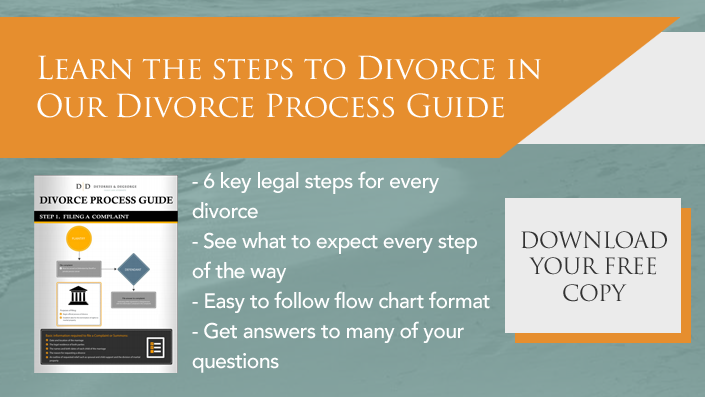 The decision to divorce isn’t one that is lightly made. Oftentimes, our clients come to their initial consultation having mulled over the idea of divorce for months, or even years. Even with all of this consideration, however, it’s common that individuals still have a number of questions for their attorneys prior to ultimately making the decision to divorce. Below are some questions that you may want to ask your lawyer before deciding to divorce.
The decision to divorce isn’t one that is lightly made. Oftentimes, our clients come to their initial consultation having mulled over the idea of divorce for months, or even years. Even with all of this consideration, however, it’s common that individuals still have a number of questions for their attorneys prior to ultimately making the decision to divorce. Below are some questions that you may want to ask your lawyer before deciding to divorce.
How do you decide what cause of action to file under?
There are many causes of action, or reasons, for divorce. The causes of action are either considered a “fault” basis – such as adultery, extreme cruelty, or addiction – or “no fault”– such as irreconcilable differences and separation for a period of 18 months. There may be some situations in which the party feels strongly about filing under one of the fault provisions; however, a misconception is that you receive a benefit or more in alimony or equitable distribution if you file under a fault provision. This is simply not correct. While New Jersey continues to have the option to file under a fault provision, the laws do not provide for anything additional because of the actions of one party – except in extremely rare and egregious situations. Therefore, it is often recommended that you file under the no fault provision.
How is child support and alimony calculated?
In New Jersey, child support is dictated by the child support guidelines. These guidelines take into account the earnings of each party, the amount of alimony that is paid from one party to the other, the number of overnights each parent has with the children, the ages of the children, and the cost of the children’s share of the health insurance. The guidelines provide a weekly obligation, which is that party’s share of the child’s support. In circumstances in which the parties earn a net income of more than $3,600 per week, there may be a deviation from the guideline to provide additional support. Unlike child support, alimony is not calculated by a program or formula. Instead, there is a list of factors to consider in reaching an agreeable amount of child support. The overall consideration, however, is one party’s needs versus the other party’s ability to contribute to those needs.
How is custody determined?
There are two types of custody in all matters: legal and physical. Legal custody pertains to the right to make decisions on behalf of your children, such as decisions regarding their health, education and well-being. You can have either joint legal custody, meaning that the parents both make the major decisions in the child’s life, or sole legal custody, meaning only one parent has the right to make those decisions. The vast majority of parents in New Jersey share joint legal custody. Physical custody, meanwhile, refers to with whom the child resides. Again, this is often a shared arrangement, though the specifics of that arrangement vary greatly by case. In the event that you and your spouse are unable to come to an agreement about parenting time and custody, you may need to employ a custody expert who will perform an evaluation in order to issue an opinion as to what the custody arrangement should be.
If you have questions about a divorce in New Jersey, contact the attorneys of DeTorres & DeGeorge to schedule a consultation.


 START LIVE CHAT
START LIVE CHAT










